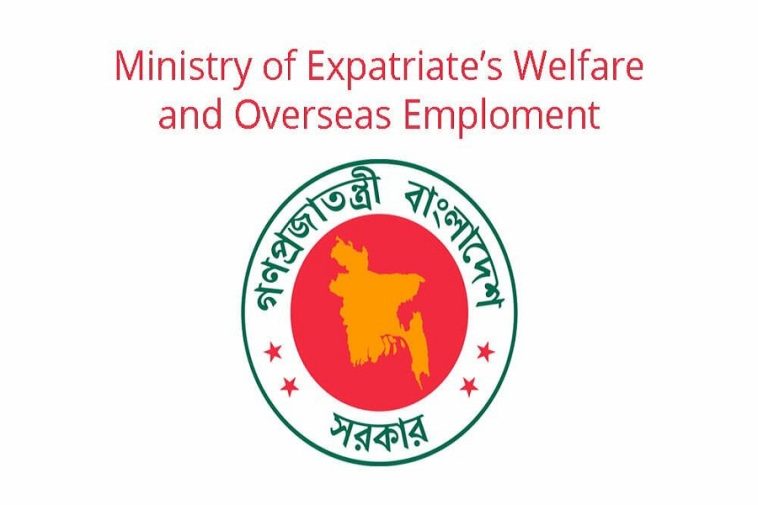On the last few days of December in 2024, there unfolded a poignant scene in front of Bangladesh’s Ministry of Expatriates’ Welfare and Overseas Employment. A collective voice of dissent rose from a throng of local workers who had failed in their pursuit of relocating to Malaysia. Their primary grievances were the inability to recover their passports and recruitment fees from specific agencies. These agencies had either duplicitously hinted at future migration opportunities, or had totally shut down, compelling expedited settlements.
Despite numerous reassurances from government authorities to reimburse the recruitment fees, a significant portion of these workers remain empty-handed. Promises of returning both their money and their passports have remained unfulfilled. Eventual migration into Malaysia—the mission of approximately 18,000 hopeful migrant workers—has now hit a deadlock despite prior assurances from Malaysian Premier Anwar Ibrahim during his Bangladesh visit in October of the prior year.
Historically, from 2009 to 2024, the pathway for Bangladeshi laborers aspiring to the Malaysian job market has come under restriction on multiple fronts. Each time, a syndicate was held accountable for the dysfunction. The recurring disruptions and ceaseless uncertainty within this migration system have inflicted both psychological and economic hardship on those seeking potential careers in Malaysia.
The Foreign Workers Centralised Management System (FWCMS), a private digital venture based in Kuala Lumpur, has come under scrutiny. Run by a company called Bestinet, the online platform caters to the labor export from various countries to Malaysia. Allegations have surfaced against the operations of this platform, implicating it as a conduit for a massive syndicate involving influential entities in Malaysia.
The FWCMS, through Bestinet, permits 15 countries to recruit overseas labor for Malaysia. However, the case of Bangladesh introduces a unique complication. Through a distinct arrangement, all hiring firms from Bangladesh are prohibited from participating. At the center of this controversy, a Malaysian businessman of Bangladeshi descent, the founder of the said company, stands accused of being the syndicate’s puppet master, along with an accomplice; a former high-ranking official of the Bangladesh Association of International Recruiting Agencies (BAIRA).
In a phase of potential revival in 2022, the Malaysian labor market was due to reopen after a hiatus of four years. A Memorandum of Understanding (MoU) was inked between both countries, where the Bangladeshi administration spacious ly conceded the selection of recruitment agencies to Malaysian authorities. Such a relinquishment, without any stringent guidelines for agency selection, opened the doors for unprincipled entities to form the notorious syndicate.
Following this development, out of 1,520 agency submissions by Bangladesh’s government, only an initial set of 25 were handpicked. Gradually, the number grew in phases to 101. Predominantly, entities connected to an overthrown government flocked in to establish recruitment businesses. Insight into the inner workings of the syndicate reveals an alleged extortion rate of Tk 150,000 per personnel by the selected agencies from non-member entities.
The impact of this syndicate managed to sky-rocket the cost of labor export to Malaysia. The levied amount went up from the government-approved Tk 78,990 to an average fee of Tk 5,44,000. Workers who had footed the full bill couldn’t secure their flights to Malaysia, their dreams of a better livelihood still grounded. These hopeful migrants are now buckling under the weight of loans procured for their migration attempt.
Looming over those who reach their destination country is often a series of disappointments. Promised jobs remain unfulfilled; poor living conditions and meals, prolonged unemployment, and mental and physical abuse are the grim realities. False accusations sometimes lead to imprisonment. Hence requiring the parties responsible for causing such severe damage to Bangladeshi migrant workers to be held accountable becomes critically urgent.
Recent media releases indicate a formal request from Bangladesh to Malaysia to extradite two businesspersons implicated in alleged money laundering and human trafficking. In response, the Malaysian Anti-Corruption Commission has already detained one of the suspects, a Bangladeshi director bearing the title of Datuk under corruption charges. Bangladesh has taken similar legal action against 103 individuals, inclusive of a former minister and secretary.
Immediate action is necessitated to guarantee full recruitment fee reimbursement to migrants and the return of their passports. Around 18,000 aspiring migrants who couldn’t travel to Malaysia are awaiting these resolutions. Experts suggest that migrants failing to secure employment, notwithstanding the expensive fees, ought to be compensated with a sum five times the amount they initially paid.
Indisputably, the syndicate system not only wreaks havoc on migrant workers’ lives but also taints the country’s reputation. While the interim government has taken some constructive measures to safeguard migrant workers, issues related to the syndicate system in the Malaysian labor market need attention. To rectify this, systemic accountability must be firmly established.
Subsequently, the government is advised to negotiate a bilateral agreement stipulating that all eligible recruitment agencies will actively participate in the labor recruitment process whenever the market reopens. Simultaneously, measures should be devised to penalize non-compliant agencies and curb exploitation meted out to migrant workers both domestically and overseas.

